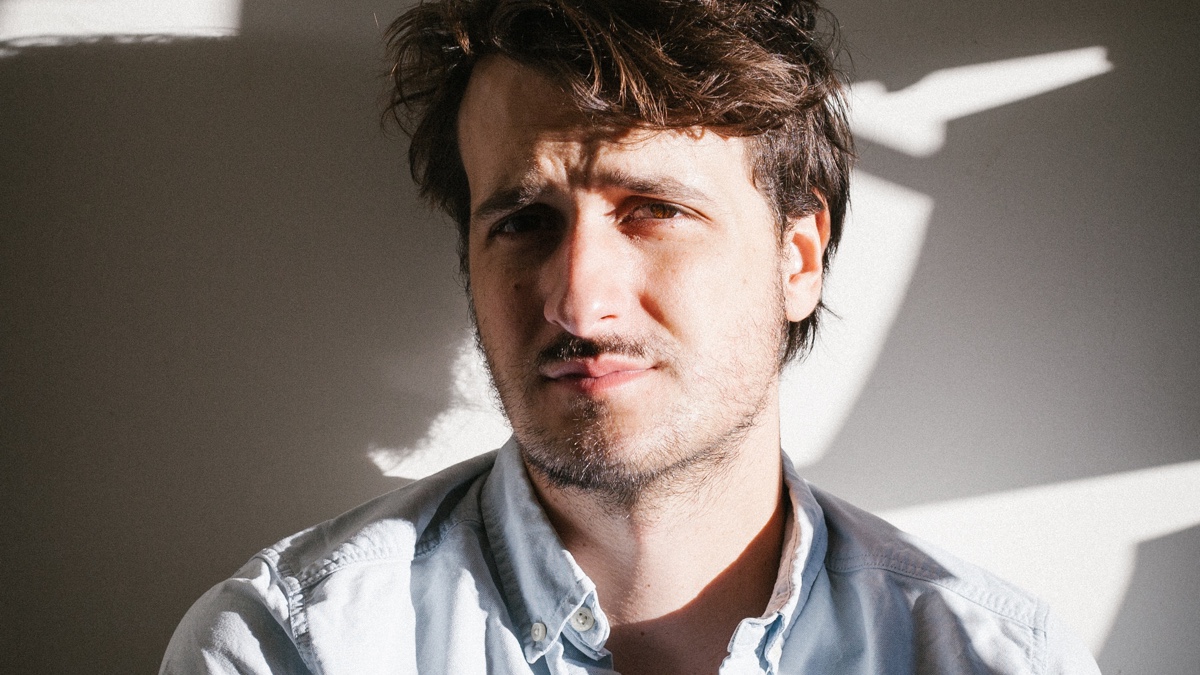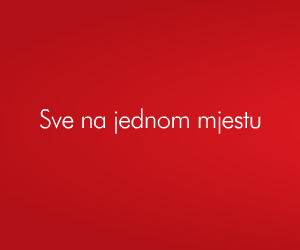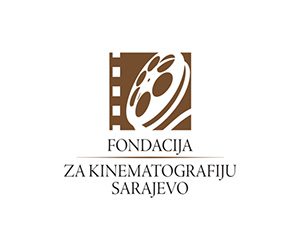
13/10/2022
Bureau: In 'Trenches', Ukrainian soldiers reveal the most intimate thing: their vulnerability
While diplomats are negotiating uncertain truces and cease-fires far away, in the Donbas region of Ukraine, soldiers are battling Russian-backed separatists. At an age when some people are living the best years of their lives, men and women are fighting on the front lines, condemned to dig trenches again and again, while bombs are constantly falling on them. French war journalist and first-time director Loup Bureau takes us on an impressive and astonishing cinematic journey revealing the bare truth and rawness of survival, in what is being called the last conflict on European soil. The documentary 'Trenches' is in the selection of the 23rd Mediterranean Film Festival, which was the occasion for a conversation with the author about the filming process, wars and the currently raging war, journalism and film.*Why Ukraine and why trenches? How did you decide to document this story?
The origin of the project is connected to my personal story. In July 2017, my life took an unexpected turn. While working on the Turkey-Iraq border, I was arrested by Turkish authorities for reporting on behalf of TV5 Monde (a French language global news network) on a Kurdish militia in northern Syria. Turkish authorities considered the militia to be a terrorist organization. I was sentenced to 25 years in prison for « terrorism »; in a Kafkaesque trial based on false accusations. I was then 27 years old. In the end, I spent 52 days in a high-security prison before French authorities were able to negotiate my release. This ordeal deeply transformed me. My deepest self was damaged, but paradoxically, my desire to tell stories was not tainted. I didn’t become a better version of myself, I simply became more alive. When I returned to Ukraine, my vision of the world had changed. In the trenches, I discovered similarities with prison life in the psychological confinement, the fear of dying and uncertainty. With time, I also spotted a degree of gentleness in this ultra-violent environment. While soldiers steel themselves to face the war, their humanity is fierce and beautiful. When I saw this, I realized that practically no one was aware that only a few thousand kilometers away, on the edge of eastern Ukraine, young Europeans were dying, and continue to die, in an absurd war. Also I realized that no news report could have covered the scope of the vision. These emotions can be captured only if given enough time, through a different approach: in the medium of film.
You spent almost four months in the trenches 'hunting' for footage. How did the soldiers accept you? In these conditions when they are facing with death, was it difficult to connect with them? How did you approach them?
When you are realizing a movie about the war, you have to gain trust. It takes time, and it’s all about the sensitivity of the approach that you have to someone. What is difficult in the war field is that these people are facing death basically. So it’s very intimate. I spent several months with them in the trenches. As I came and went, they got used to my presence and I gained their trust. It’s all a matter of approach and sensitivity towards them. I was able to film in total freedom and recount life in the trenches like no one had done before. There was a huge level of responsibility in this job, as I had to be careful not to put them in danger with what I was capturing with my camera. War is not a common ground. When you film a soldier at the front, you are filming something extremely intimate and precious. The proximity to death touches our innermost nature. Suddenly, there are no more tricks, appearances, lies. Everything is in the trenches and is more real than anywhere else in the world.
What was the most difficult for you?
Most of the people who cover the frontline do it for a few days, a few weeks at most. Staying for months in a war zone is exhausting. Because you have to constantly think about protecting yourself while filming the war. For example, I had to wear a 20-kilo bulletproof vest during the entire shoot. The environment of the trenches meant that I could not be accompanied by a film crew. Somehow, the hardest part of shooting this documentary was to keep the line, the spirit of the film, which I had fixed in my mind. Because with the tiredness, the few hours of sleep, the fear and the extreme conditions, the temptation is great to let it go, and in a way, to lose yourself. There were moments of extreme tension where I wondered what I was doing there. Some soldiers were severely injured during the filming, and I came close to being wounded several times. Not to mention that at any time the commanders could have decided that I had to leave the frontlines. In the end, finishing a war documentary film over several months is kind of a little miracle.
Of course, the film tells the story of the war that is raging at the moment, but there is also a story about the everyday life that soldiers experience. What did you want to show?
Most of the war documentaries we got used to see focus on physical violence. There is something overpowering for documentary filmmakers in war about revealing these extreme moments. And few people escape this temptation. What I have learned from those long months spent in the trenches is that physical violence is only one of many components of war. In a conflict, one must transform one’s surroundings and oneself. One has to build and consolidate one’s living environment, find protection in it, and adapt to it. Transformation is vital to face death, recreating a daily routine, and some form of normality in the abnormal world of armed conflict. And that is the very essence of Trenches. The film unveils the cinematic potential of the soldiers; everyday lives: shoveling earth, burying themselves in the trenches, boredom. War is seen through the prism of absurd logistics. This relative tranquility is the mainspring of the film. A tranquility loaded with tension. And in the endless cycle of their days at the front, the soldiers reveal what is most intimate: their vulnerability.
Why in black and white? At first it seems like we are watching a story from the First World War?
When I first discovered that the Ukrainian conflict had turned into a war of trenches, I was struck by the parallel with WWI. I wanted to keep the audience in this temporal limbo, as the action takes place today, but in a context they only associate with the past. Black and white also creates a specific aesthetic by accentuating the interplay of light and shade, particularly present in the confined space of the trenches. Lastly, black and white adds an element of poetry: an ashy, dull, almost melancholic quality which allows me to adjust the aesthetic feel of each situation and character. Another important aesthetic choice is that the film is shot entirely in a 4:3 aspect ratio, which centers the image on the faces of these men who live in very cramped spaces with a lack of privacy inherent to the trenches. This aspect ratio offers an almost pictorial aesthetic that lends itself well to carefully-worked compositions, like a painting or a poster. These shots, filmed on a human scale, make it easy to understand their psychological confinement. The framing emphasizes the lethargy and inner distress.
How did you manage to catch such excellent shots?
It's all a mater of time, and probably also of field. When you are confined to a particular place during the entire shooting, you have the time to set your frame, to ask yourself questions about how to best reflect the environment around you. I have always been fascinated by Russian cinema and it has surely influenced me. Such films as “Come and See” by Elem Klimov or “Ivan’s Childhood” by Tarkovsky were, among others, indirect influences on how to show the war.
In the synopsis you state that this is a story about the last war on European soil, to what extent is this a political film?
Some would say every film is political, and in a sense it is. But that’s not its essence. This film is the story of a battle and, in many respects, a personal one: the desire to tell the story of something no one really seeks to see or understand, as news reports about Ukraine no longer interest « the public »; After having covered the EuroMaidan movement as a journalist, the beginning of the war and its impact on Ukrainian society, I felt a kind of urgency to turn to the tools of cinema. I am French, I love Ukraine, and I don’t understand why Western powers haven't put an end to this destructive conflict at the gates of Europe. I am perplexed and want to share how I feel as a man filming my fellow men and, in doing so, documenting a love for life and the folly of men in general. Including our own.
You have previously reported and covered the Arab Spring in Egypt, the Syrian war. Was it different now? Where did the love for war reporting come from? Is there fear and how do you control it?
Paradoxically, I have always wanted to make documentary films. But because the cinema seemed inaccessible to me, I started with journalism. And back in 2011, when I finished my studies, the Arab springs began. It was something new, very strong emotionally, I think any young journalist would have dreamed of covering this kind of events. Revolutions are unforgettable moments because you can see in front of you, the societies that are changing, evolving. I never sought to cover the war in particular, it came to me somehow, with the start of the war in Syria. But the question you always have to ask yourself in war, whether it's a news report or a documentary, is about the risk. Is the risks I'm taking to show something worth it ? As a war reporter, you often think you are aware of the risks you are taking. But my detention in Turkey taught me something very important : we are never really aware of certain things until we have experienced them. You can't know what detention is without having experienced it. It is not told, it is lived. Once you've experienced that, everything changes. And now I find it very difficult in my job to take risks. I did it for Trenches, because it was almost a personal and vital need to try to show something that seemed essential to me, because I was convinced that the price was worth it. But in general, I now avoid it as much as possible. And there are so many ways to show war, which doesn't limit itself to the frontlines. Far from it.
Given that you are a journalist yourself, how would you rate media reporting from Ukraine? How objective and true is the picture we get?
For me, the media coverage of the war in Ukraine now has something almost schizophrenia, if I may say so. Because before the invasion, I spent so many years trying to convince the media to keep talking about the war in Ukraine. Unfortunately, there were signs that many did not want to see. It's a more general problem of what makes the news, how it is constructed. But as far as I'm concerned, I'm satisfied now with this media coverage. Everything's not perfect, but the stakes of what's happening in Ukraine are high, and most of the medias have understood this.
Where are you now and what is your next project?
Working on this documentary was a revelation for me. For the first time in my life, I created something that was not dictated by various and varied codes. There is this infinity of possibility with the cinema which attracts me a lot. I discovered, and I also learned a lot. I am also aware of how lucky I was to be able to make this film. And I would like to continue on this tracks in Ukraine, but the path of creating a film is long, sinuous, and disseminated with pitfalls. This is also what makes it beautiful.
*Text published in Večernji list


